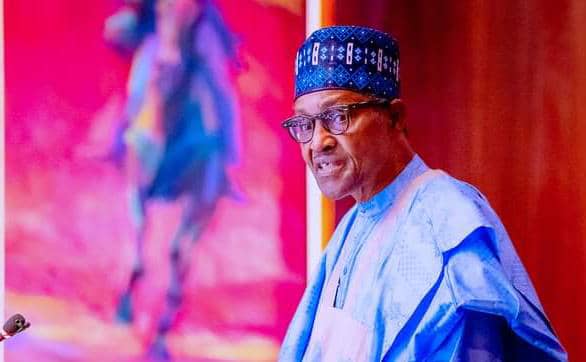BY ISMAIL RASHEED
It has almost become conventional wisdom that governance takes the backseat as states are gripped by the giddy frenzy of politics. This is increasingly apparent across the country, with just a couple of weeks before the formal commencement of campaigns. Happily, though, a few states have bucked this trend, pushing on doggedly with the terms of their mandate to deliver good governance and better living conditions to the people.
One such state is Ogun, where the governor, Dapo Abiodun, continues to demonstrate that the welfare of the people should truly be the reason for the existence of governments. This is evident in his almost daily crisscross of project sites and launch of initiatives that have attracted investments, created jobs, improved public healthcare and education, and set the state on a path to becoming a vibrant technology hub.
But in an age that remains largely cynical of government policies, thanks to the anonymity of social media and its occasional toxicity, some might still view the Abiodun administration’s tireless push to enthrone an enduring public infrastructure and services as an attempt to reap some political capital ahead of the coming elections. That insinuation may be correct if the governor had not demonstrated a similar work ethic in the early years of his government. From the outset, however, the Ogun State government has been stirring up a new consciousness with regard to what a government can achieve when it musters the sufficient political will to give public infrastructure a fitting makeover and nurture a vibrant local economy.
Advertisement
This zeal led to the implementation of several signature capital projects in record time. These include the reconstructed Ijebu Ode-Epe Expressway that enables Lagos-bound commuters coming from Benin and the country’s eastern flank to bypass the Lagos-Ibadan Expressway gridlock and the 42-kilometre Sagamu Interchange-Abeokuta Road. Construction work also began in the first year of his administration on an agro-cargo airport, which was conceived to drive economic activities in the state. It is projected that the airport will be completed before the end of this year, and will create a minimum of 25,000 jobs in its first 18 months of operation.
As is sometimes the case, infrastructural expenditure tends to be implemented at a pace disproportionate to investment in intangible resources such as agriculture, education and healthcare. Some would say, albeit cynically, that the reason is that building roads or fixing collapsed ones, more often than not, yield instantaneous outcomes which understandably earn governors accolades. This is not so with investments in sectors like agriculture or ICT, as the results are not immediately discernible. But no such gross disparity exists in Ogun state. That is because the governor understands that investing in intangible sectors can potentially generate wholesome benefits in both a social and economic sense, even if those results are not immediately apparent. His sustained investment in ICT and agriculture is a candid example.
Shortly after assuming office, Abiodun unveiled the Ogun job portal, a brilliant concept that essentially links youths in the state with opportunities in the job market. The benefits are evident in the outcome. For instance, recent data on Nigeria’s most fully employed population published by the National Bureau of Statistics showed that Ogun state has the highest figure with 74%. The report also indicated that the state has the least unemployed people in the country. The establishment of the job portal is a nod to the governor’s firm conviction in the inherent potential of ICT. His setting up of the Ogun Tech Hub and Science, Technology, Engineering and Mathematics (STEM) Centre clearly attests to that.
Advertisement
Apart from the training and mentorship the centre offers youths, its physical space creates an opportunity for tech entrepreneurs and persons who share similar interests in technology to work together on projects. This particular feature is essential given that Ogun state is home to the largest number of tertiary institutions in Nigeria. It is even more so given an NBS report last year that revealed that for every 100 internet subscribers, six are based in Ogun state. That figure is second only to Lagos’s 12. Youths who are not so tech-savvy are trained and also offered temporary office space in the co-working tech cluster where they also receive mentoring. It is thus not an unrealistic expectation that the Ogun Tech Hub might attract the attention of global tech giants just like Lagos had when Facebook established its African hub, the first such in Africa, in 2018, in collaboration with CcHub (Co-Creation Hub) and as it did with Google’s tech-oriented boot camp in 2017.
Indeed, the government has leveraged this blossoming embrace of ICT to eliminate corruption and red tape in its public sector. The state has successfully deployed ICT in the following service platforms; Ogun State Electronic Tax Management System, and the Ogun State Land Administration and Revenue Management System (OLARMS). The huge investment in building a digital infrastructure has placed the state in good stead to benefit immensely from a globalised economy that is increasingly being shaped by technology. So it is not flattery when the minister of communications and digital economy, Isa Pantami, says Ogun state will become Nigeria’s Silicon Valley. The recent strategic partnership between the state and GetFundedAfrica is one giant leap in that direction. The goal of the partnership is to make Abeokuta, nay Ogun state, an innovation state and destination of venture capital flows. GetFundedAfrica is a pan-African venture service platform that matches startups, investors and corporates. It had previously helped African startups raise over $150 million in 2021.
So, the attention paid to physical infrastructure is by no means at the expense of investment in other critical areas of need. Nor is it induced by the expected acclaim that fixing roads often generates. The truth is there is a yawning infrastructure deficit arising from years of neglect such that even sustained rounds of extensive road rehabilitation are often barely sufficient interventions. This is particularly acute in Ogun state which has the longest cumulative stretch of federal roads and is further complicated by the federal government’s directive urging states to refrain from fixing federal roads as it would no longer reimburse them for doing so. No incentive to abdicate one’s responsibilities can be bigger than such directive. But Abiodun understands the pain that leaving such roads in their deplorable conditions would inflict on the masses.
This, simply put, is the motivation that underpins the continuing zeal to reconstruct and rehabilitate federal roads such as the Lagos-Sango Ota-Abeokuta Road which had literally become a nightmare for users. The sustained attention he has paid to other road infrastructure across the state is inspired by no less ennobling ideals. That is why the attention paid to core governance issues has not been overshadowed by the typically consuming frenzy of politicking. Indeed, his passion is a subtle reminder that politics is essentially about the people and how their lives are impacted by the actions of the state.
Advertisement
Rasheed writes from Abeokuta
Views expressed by contributors are strictly personal and not of TheCable.
Add a comment






